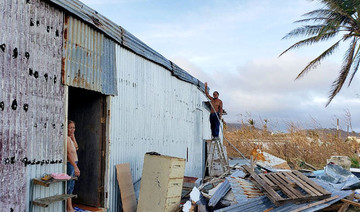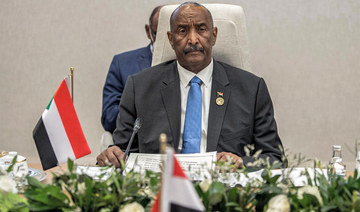MANILA: Thousands were forced to flee their homes, while a coastal town was left isolated as typhoon Yutu slammed the Northern Philippines yesterday (Tuesday, Oct. 30).
Packing maximum sustained winds of 150 kilometers per hour and 210 kph gusts, Yutu (local name Rosita) made landfall in the coastal town of Dinapigue, Isabela province at 4am.
As Arab News went to press, there had been only one death and one person missing in connection with the typhoon.
In Isabela province, officials said about 12,000 people are now seeking temporary shelter in evacuation centers, while around 3,000 evacuees were reported in Cagayan province.
More than 2,000 passengers were also stranded in different sea ports in the country, according to the coast guard.
Thirty flights were canceled, resulting in 1,937 stranded passengers.
The National Disaster Risk Reduction and Management Council said an estimated 12 million people were living along the storm’s path.
Yutu crossed a similar path to that of super typhoon Mangkhut (local name Ompong), which hit the country in September, killing at least 80 people and causing almost P17 billion ($0.32 billion) of damage to agriculture.
In a radio interview, Dinapigue Mayor Reynaldo Derije said Yutu’s intense winds cut off electric and communication lines, while heavy rains caused flooding in low-lying villages.
Teodoro Sabiano, of the Municipal Disaster Risk Reduction and Management Office, said Yutu seemed to have caused more destruction than Mangkhut in their town.
Photos and videos shared on social media and TV footage showed toppled trees and branches, as well as electric posts sprawled across roads; debris, and ripped-off tin roof sheets in areas hit by the storm. Even a big warehouse was not spared from damage. Some structures made of light materials were completely destroyed.
Sabiano said it was good that they were able to prepare for the impact of the typhoon, specially in evacuating thousands of residents in coastal villages.
Dinapigue local officials appealed to the national government for food, water and clothes.
In Benguet province, where landslides caused by Mangkhut in September killed at least 80 people, local officials said pre-emptive evacuation was enforced ahead of the storm’s arrival.
Meanwhile, the Mines and Geosciences Bureau warned that Yutu will raise landslide susceptibility in Northern Luzon, particularly in the mountainous Cordillera provinces, noting that soil in the area is already saturated with water from Mangkhut in September.
The MGB pointed out that not all landslides occur during a downpour. Some happen afterwards, so residents are advised to take the necessary precautions.
The weather state bureau said on Tuesday that Yutu has weakened after crossing the rugged terrain of Northern Luzon and is now heading toward the West Philippine Sea.
Stormy weather is still expected over the areas under storm warning signals No. 3 and 2, and travel by land is risky over these areas.
There will still be moderate-to-heavy rains directly associated with the typhoon over Northern and Central Luzon, thus residents in these areas, especially those living near river channels, in low-lying areas and mountainous areas, are advised to take appropriate action against possible flooding and landslides, and to coordinate with the local disaster risk reduction and management offices.
Storm surge of up to three meters is possible over the coastal areas of Ilocos Sur, La Union and Pangasinan.
Fisherfolk and those with small seacraft are advised not to venture out over the seaboards of areas with storm signals and the eastern and western seaboards of Southern Luzon.
As of late Tuesday afternoon, Yutu was moving west-northwest at 25 kph with maximum sustained winds of 125 kph near the center and gustiness of up to 190 kph.
Yutu exits the Philippine area of responsibility by today Wednesday.
Thousands flee homes as Typhoon Yutu batters Northern Philippines
Thousands flee homes as Typhoon Yutu batters Northern Philippines
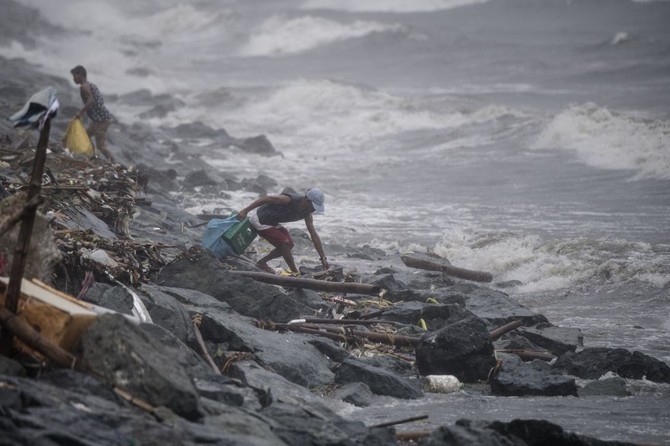
India protests separatist slogans allowed at Toronto event
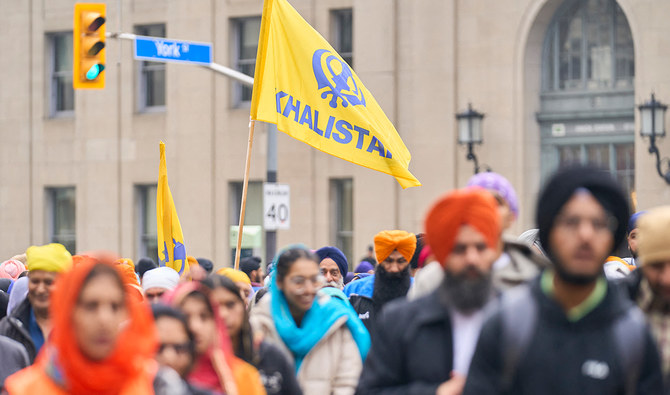
- Bilateral relations soured last year after Canada linked Indian agents to June 2023 murder of its national
- Hardeep Singh Nijjar, 45, was shot dead outside a Sikh temple in Surrey, which has a large Sikh population
NEW DELHI: India summoned the Canadian Deputy High Commissioner on Monday and expressed “deep concern and strong protest” after separatist slogans in support of a Sikh homeland were raised at an event addressed by Prime Minister Justin Trudeau.
Bilateral diplomatic relations soured last year after Trudeau said Canada was “actively pursuing credible allegations” that Indian agents were potentially linked to the June 2023 murder of a Canadian citizen.
Hardeep Singh Nijjar, 45, was shot dead outside a Sikh temple on June 18 in Surrey, a Vancouver suburb with a large Sikh population. Nijjar supported a Sikh homeland in the form of an independent Khalistani state and was designated by India as a “terrorist” in July 2020.
New Delhi has denied any formal government role in Nijjar’s murder.
India’s foreign affairs ministry said on Monday it had conveyed “deep concern and strong protest” at such actions “being allowed to continue unchecked at the event.”
Slogans supporting the rise of a separatist state were raised at an event in Toronto, according to ANI news agency, in which Reuters has a minority stake.
“We will always be there to protect your rights and your freedoms, and we will always defend your community against hatred and discrimination,” ANI reported Trudeau as saying.
Canada has the highest population of Sikhs outside their home state of Punjab in India, and the country has been the scene of many demonstrations that have irked India.
The Canadian foreign ministry did not immediately respond to a request for comment.
UN asks South Sudan to remove new taxes that led to a pause in food airdrops
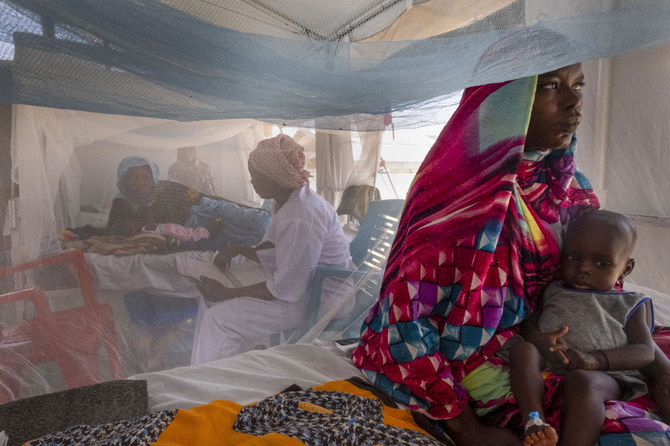
- UN said that pausing of airdrops in March had deprived of food 60,000 people who live in areas that are inaccessible by road
JUBA: The United Nations has urged South Sudan to remove newly imposed taxes and charges that led to the suspension of UN food airdrops for thousands of people who depend on outside aid.
The UN Humanitarian Affairs Agency said Monday in a statement that the pausing of airdrops in March had deprived of food 60,000 people who live in areas that are inaccessible by road, and their number is expected to rise to 135,000 by the end of May.
The UN said the new charges would have increased operational costs to $339,000 monthly, which it says is enough to feed over 16,300 people. The new charges introduced in February are related to electronic cargo tracking, security escort fees and new taxes on fuel.
“Our limited funds are spent on saving lives and not bureaucratic impediments,” Anita Kiki Gbeho, the UN humanitarian coordinator for South Sudan, said.
UN spokesman Stéphane Dujarric said in New York that the taxes and charges are also impacting the nearly 20,000-strong UN peacekeeping mission in South Sudan, “which is reviewing all of its activities, including patrols, the construction of police stations, schools and health care centers, as well as educational support.”
The UN says the South Sudan government had said it would remove the new charges and taxes but had not committed to it in writing since February.
An estimated 9 million people out of 12.5 million people in South Sudan need protection and humanitarian assistance, according to the UN The country has also seen an increase in the number of people fleeing the war in neighboring Sudan, further complicating humanitarian assistance to those affected by the internal conflict.
French police remove pro-Palestinian students from the courtyard of Sorbonne university in Paris
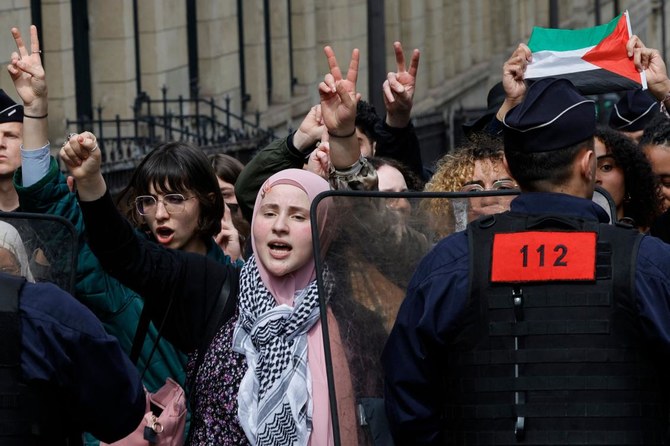
- About 50 protesters set up tents at midday Monday at the elite university’s courtyard
PARIS: French police removed dozens of students from the Sorbonne university after pro-Palestinian protesters occupied the main courtyard of the elite institution in Paris on Monday.
About 50 protesters set up tents at midday Monday at the Sorbonne university courtyard in support of Palestinians, echoing similar encampments and solidarity demonstrations across the United States.
Protesters unveiled a giant Palestinian flag and chanted slogans in support of Palestinians in Gaza, as Israel continues its offensive following the deadly Oct. 7 Hamas attack that triggered the Israeli-Hamas war. Police entered the university grounds in the early afternoon and removed them.
About 100 demonstrators took part in the protest near the prestigious university amid heavy police presence that were also guarding the university entrance to prevent students from setting up camp inside again.
Lorelia Frejo, a graduate student at the Sorbonne who joined a protest outside the university, said police used force to remove her peers from the courtyard. “They were peaceful and police took them out with no explanation,” Frejo said. Students in Paris were inspired by the protests at New York’s Columbia University who remain steadfast despite police pressure, she added.
“They (Columbia protesters) are very strong and want to fight for justice and for peace in Palestine,” Frejo said.
The Sorbonne occupies a unique place at the heart of French public and intellectual life. Last week, President Emmanuel Macron chose it as the venue to deliver a speech on his vision of Europe ahead of elections for the European Parliament in June.
Last week protests broke out at another elite university in the French capital region, the Paris Institute of Political Studies, known as Sciences Po, which counts Macron and Prime Minister Gabriel Attal among its many famous alumni.
Tensions had broken out on campus as pro-Palestinian students inspired by Gaza solidarity encampments at campuses in the United States sought to occupy an amphitheater.
On Friday, pro-Palestinian and pro-Israeli demonstrators faced each other in a tense standoff in the street outside the school. Riot police stepped in to separate the opposing groups.
The protest ended peacefully, when students agreed to evacuate the building late on Friday. The head of Sciences Po said an agreement with students had been reached.
Afghan Taliban’s treatment of women under scrutiny at UN rights meeting
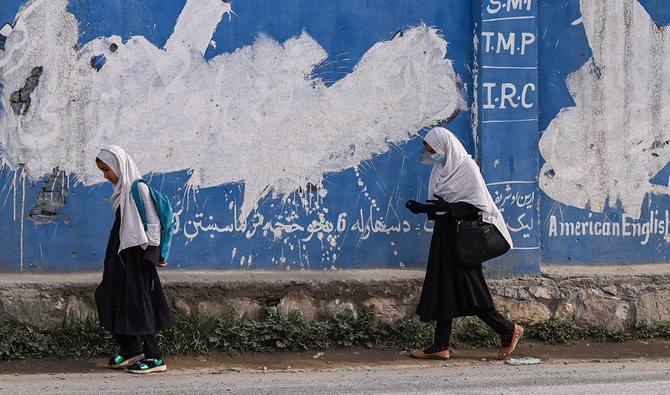
- The Taliban say they respect rights in line with their interpretation of Islamic law
- Taliban have barred girls from high school and women from universities and jobs
GENEVA: Afghanistan’s Taliban face criticism over their human rights record at a UN meeting on Monday, with Washington accusing them of systematically depriving women and girls of their human rights.
However, in an awkward first for the UN Human Rights Council, the concerned country’s current rulers will not be present because they are not recognized by the global body.
Afghanistan will instead be represented by an ambassador appointed by the previous US-backed government, which the Taliban ousted in 2021.
In a series of questions compiled in a UN document ahead of the review, the United States asked how authorities would hold perpetrators to account for abuses against civilians, “particularly women and girls who are being systematically deprived of their human rights“?
Britain and Belgium also raised questions about the Taliban’s treatment of women. In total, 76 countries have asked to take the floor at the meeting.
The Taliban say they respect rights in line with their interpretation of Islamic law.
Since they swept back into power, most girls have been barred from high school and women from universities. The Taliban have also stopped most Afghan female staff from working at aid agencies, closed beauty salons, barred women from parks and curtailed travel for women in the absence of a male guardian.
Under the US system, states’ human rights records are subject to peer review in public meetings of the Geneva-based Human Rights Council, resulting in a series of recommendations.
While non-binding, these can draw scrutiny of policies and add to pressure for reform.
The UN Human Rights Council, the only intergovernmental global body designed to protect human rights worldwide, can also mandate investigations whose evidence is sometimes used before national and international courts.
Indian students protest US envoy’s campus talk over Gaza war
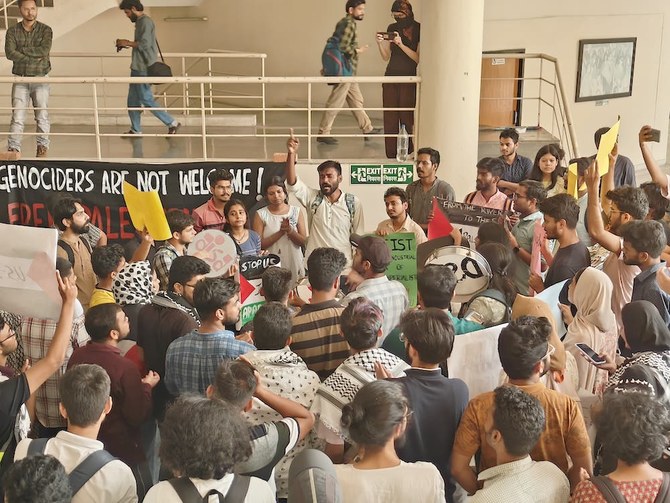
- Student-led protest led to university canceling an event involving US ambassador
- Indian students say they stand in solidarity with students protest across US
NEW DELHI: Students at one of India’s most prominent universities gathered in protest over an event involving the US ambassador to New Delhi on Monday, as they stood up against American support for Israel’s war on Gaza.
US Ambassador to India Eric Garcetti was invited for a talk on US-India ties at the Jawaharlal Nehru University in New Delhi on Monday afternoon, which would take place amid protests on American campuses demanding their universities cut financial ties with Israel over its military offensive in Gaza, which has killed more than 34,000 Palestinians.
At the university’s convention center, over 100 students organized by the Jawaharlal Nehru University Student Union protested the invitation of Garcetti, calling out his complicity “in the genocide Israel is currently doing in Palestine.”
JNUSU President Dhananjay told Arab News: “By calling such a person in the university … who is supporting the genocide, we want to tell them that JNU is not silent on this issue and we want to speak up.
“We are protesting against the US support for the genocide in Gaza committed by Israel.”
Hundreds of US college students have been arrested and suspended as peaceful demonstrations calling for a ceasefire in Gaza and divestment from companies linked to Israel spread across American campuses.
The student-led movement comes after nearly six months since Israel began its onslaught on the Gaza Strip, which Tel Aviv said was launched to stamp out the militant group Hamas.
Hundreds of thousands of housing units in the besieged territory have either been completely or partially destroyed, while the majority of public facilities, schools and hundreds of cultural landmarks have been demolished and continue to be targeted in intense bombing operations.
JNU student leaders said they stood in solidarity with the protesting students in the US.
“We are students, and we need to ask questions. If some atrocities are taking place and there are mindless killings going on, speaking out against this should be the responsibility of all sections of society,” Dhananjay said.
“The visuals that we see make us shiver and shake our conscience. If we don’t speak up, then I don’t think we have a right to be a social being.”
At the JNU campus on Monday, the student protest led to a cancellation of the event involving the US envoy.
“We feel happy that we forced the administration to cancel the talks by the ambassador,” JNUSU Vice President Avijit Ghosh told Arab News.
Despite India’s historic support for Palestine, the government has been mostly quiet in the wake of Israel’s deadly siege of Gaza.
When Indians went to the streets in the past months to protest and raise awareness on the atrocities unfolding in Gaza, their demonstrations were dispersed by police and campaigns stifled.
Members of Indian civil society have since come together to challenge their government’s links with Tel Aviv and break Delhi’s silence on Israel’s war crimes against Palestinians, reflecting similar concerns that some university students also felt.
“The US is supporting Israel in the killing of Palestinian people in Gaza. It’s also suppressing students in its country who are raising voice against the genocide in Gaza,” Ghosh said.
“We are agitated that India is being a mute spectator and not taking a clear stand against the ongoing genocide in Gaza.”


